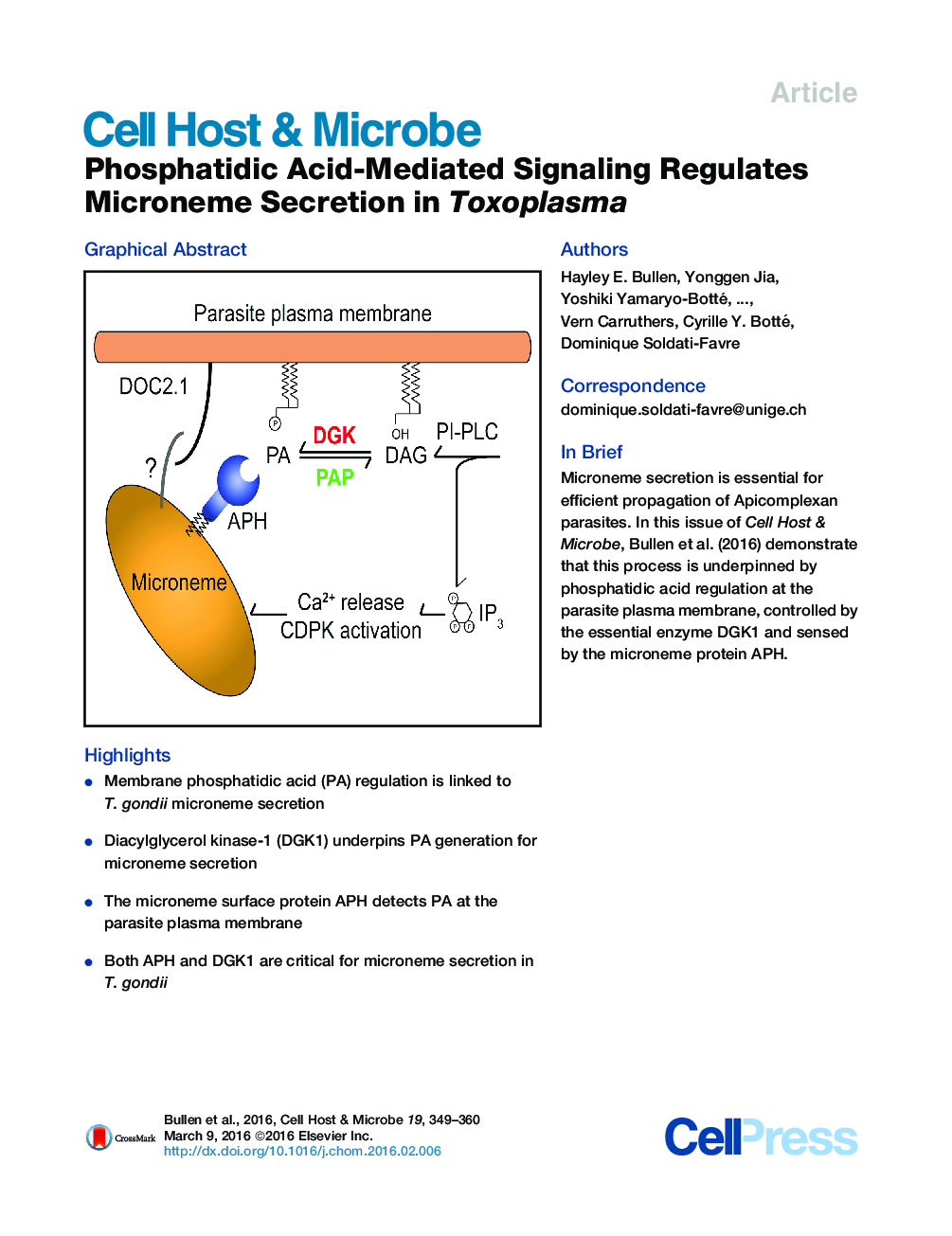| کد مقاله | کد نشریه | سال انتشار | مقاله انگلیسی | نسخه تمام متن |
|---|---|---|---|---|
| 4360849 | 1301319 | 2016 | 12 صفحه PDF | دانلود رایگان |
• Membrane phosphatidic acid (PA) regulation is linked to T. gondii microneme secretion
• Diacylglycerol kinase-1 (DGK1) underpins PA generation for microneme secretion
• The microneme surface protein APH detects PA at the parasite plasma membrane
• Both APH and DGK1 are critical for microneme secretion in T. gondii
SummaryThe obligate intracellular lifestyle of apicomplexan parasites necessitates an invasive phase underpinned by timely and spatially controlled secretion of apical organelles termed micronemes. In Toxoplasma gondii, extracellular potassium levels and other stimuli trigger a signaling cascade culminating in phosphoinositide-phospholipase C (PLC) activation, which generates the second messengers diacylglycerol (DAG) and IP3 and ultimately results in microneme secretion. Here we show that a delicate balance between DAG and its downstream product, phosphatidic acid (PA), is essential for controlling microneme release. Governing this balance is the apicomplexan-specific DAG-kinase-1, which interconverts PA and DAG, and whose depletion impairs egress and causes parasite death. Additionally, we identify an acylated pleckstrin-homology (PH) domain-containing protein (APH) on the microneme surface that senses PA during microneme secretion and is necessary for microneme exocytosis. As APH is conserved in Apicomplexa, these findings highlight a potentially widely used mechanism in which key lipid mediators regulate microneme exocytosis.
Graphical AbstractFigure optionsDownload high-quality image (136 K)Download as PowerPoint slide
Journal: - Volume 19, Issue 3, 9 March 2016, Pages 349–360
